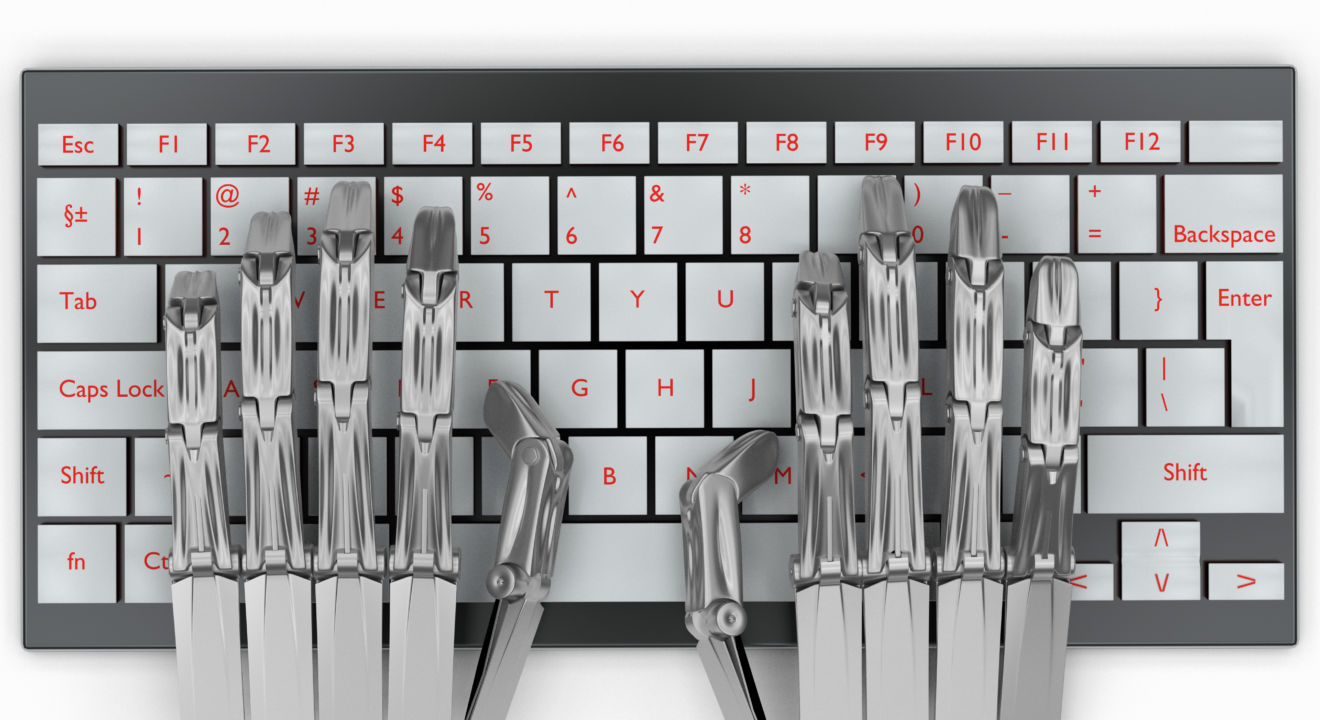Culture March 8, 2017


The rise of artificial intelligence (AI) has long been predicted to cause mass unemployment but now it appears the robots will wreak special havoc with women’s jobs.
A series of recent studies show that technology is set to gut employment opportunities for women in the so-called “fourth industrial revolution.” Women will lose five jobs for every one gained by advancements in technology, according to a report published by the World Economic Forum.
ENTITY spoke to one of the leading women in tech, UCLA academic and research scientist Alex Vasilescu Ph.D., who said AI will create many more high tech jobs than it destroys, but women are at risk of missing out on them.
“One of the biggest threats to women employment opportunities in the U.S. is their lack of interest in math, computer science or engineering,” the techologist said. “Not only do women in the U.S. have a low employment rate in STEM (Science, Technology, Engineering and Math) fields, but those graduating with engineering degrees drop out of engineering careers due to a unwelcoming ‘macho environment,’ and are often shepherded into administrative or support roles that are more likely to be automated. Therefore, women are more liable to lose their jobs to automation, and they’re also less likely to participate in the new STEM roles created by AI.”
Statistics back up that argument. The number of women in key roles in the tech sector has not improved in 10 years, according to a Women in Technology research report. Meanwhile, research from the American Association of University Women shows the number of women earning computing degrees has declined in that time.
The World Economic Forum’s report “The Future of Jobs” warns of a widening of the employment gender gap as technology continues to advance in the years ahead. It foresees women losing five jobs for every job gained compared with men losing three jobs for every job gained.
More doom and gloom comes from an Oxford University research paper which predicts that machines will eventually take over nearly half of all work currently done by humans worldwide. That report states that 47 percent of U.S. jobs are at risk of automation.
Some technologists forecast that as much as 90 percent of the population will eventually end up out of work. At last month’s World Economic Summit in Dubai, Tesla and Space X founder Elon Musk suggested governments would have to provide a “universal basic income” so that the masses who won’t be able to find work can survive.
RELATED: Elon Musk Shares His Scary Vision of the Future
Musk pointed out that the introduction of driverless vehicles alone would be responsible for the elimination of at least 15 percent of the workforce.
Alex Vasilescu, associate director of UCLA’s Computer Vision and Graphics Lab, told ENTITY, “A bleak point of view would assert that AI will result in mass unemployment that would require a basic income as a stop gap measure. However, this dystopian viewpoint does not have historical precedent. If one viewed AI through an optimistic sci-fi lens, then one might predict that AI will likely change the nature of jobs and will augment humans’ ability to perform work related tasks.”
Evidence of increased automation is everywhere. Just look at the rise of self-checkouts. They could eventually throw out of work the estimated 3.5 million cashiers in the U.S. alone, making a job favored by women from low-educated backgrounds obsolete.
Aside from cashiers, drivers, waiters, factory workers and office administrators are set to be hit first by the rise of AI. That would make true a prediction made as far back as 1983 by Nobel Prize-winning economist Wassily Leontief, who said, “The role of humans as the most important factor of production is bound to diminish in the same way that the role of horses in agricultural production was first diminished and then eliminated by the introduction of tractors.”
But experts say that white-collar careers aren’t safe either as accountants, legal aids and other entry level law and finance positions – many of which are increasingly held by women – are set to be eliminated by the advancement of AI.
Specialist professions like doctors and surgeons aren’t safe either as it won’t be long until you can discuss your symptoms via smartphone with an AI doctor.
It seems the jobs that will be safe from AI are ones that involve creativity and emotional sensitivity – such as social work, therapy and the arts.
RELATED: 5 Ways the Human Brain Still Beats Computers
So if you want to be employed for years to come in an era when the mail is delivered by drones and machines are doing most of the jobs, best brush up your bedside manner or start singing.
World famous physicist Stephen Hawking wrote in The Guardian that, “The automation of factories has already decimated jobs in traditional manufacturing, and the rise of artificial intelligence is likely to extend this job destruction deep into the middle classes, with only the most caring, creative or supervisory roles remaining.”
But he also warned of an even bleaker picture. “The development of artificial intelligence could spell the end of the human race. It would take off on its own, and redesign itself at an ever increasing rate. Humans, who are limited by slow biological evolution, couldn’t compete, and would be superseded.”